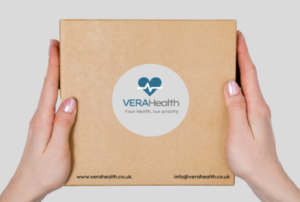Understanding the importance of an annual health check
The annual health check! A health check, health MOT, or health assessment as it’s interchangeably called, is one of those things that many of us hear a lot about but might not always understand. What is it and why is it important? In this article, we’ll be looking at the importance of an annual health check. We’ll break down what ‘the health check’ really means and detail why, when done properly, it can be one of the most helpful things we can do for our health.
What is a health check?
A health check is essentially an in-depth look at your general health. It usually involves a lifestyle assessment and medical tests with a focus on preventative health, trying to pick up any undiagnosed health problems early before they cause more serious problems.
Whilst most of us only go to see our doctor when we have a symptoms or a problem, we know that preventing problems before they start to cause symptoms is by far the better strategy.
That said, health checks can also be really helpful for people with existing chronic diseases. They can help to try to reverse these conditions or at least limit any negative effects. One of the ways that this can be done is by improving any risk factors which are likely to have caused and possibly worsened the condition in the first place.
The best health assessments should be personalised, meaning they should be focused on your unique health needs and health risks, as well as your specific health goals and capabilities.
Why is a health check important?
A health check is important for many reasons and we’ll detail the key ones below:
- Early Identification of Health Risks
As we’ve mentioned, one of the key parts of a health check is identifying health risks before they cause more problems. Some of the key chronic issues that can go undiagnosed include high blood pressure, high cholesterol, and diabetes. These can all contribute to cardiovascular disease (stroke and heart attacks) which are one the leading causes of death in the UK. Up to 85% of cardiovascular disease in the UK is preventable with the correct lifestyle changes and where necessary medication too.
Genetic factors can also play a large role in health conditions, so an important part of a health assessment will also be reviewing any family history that you might have and tailoring your health plan accordingly. Whilst genetic factors might sometimes mean you have a loaded gun, with the right lifestyle changes, you can prevent that trigger ever being pulled!
- Support you in making lifestyle changes
Lifestyle changes where necessary are a critical part of the health assessment process. Specific health risks require specific lifestyle changes, although these must be realistic and fit with your schedule and capabilities. A health action plan and coaching will help you frame what the changes you need to make and why, as well as help you set health goals. Goal setting is key in knowing what you are aiming to improve within your health parameters, even if changes are only small. This might be just a small improvement in a health marker, getting it to within the normal range, or getting it even better still. Regular follow up will help ensure that you stay on the right track!
- Tests in line with latest guidance and research
Medical knowledge is always improving and guidance can change. So with regular, good quality health assessments led by a doctor in tune with the latest guidance and research, you can be sure that you are always getting the most up to date tests and recommendations on how to optimise your health for the long term.
Who should get an annual health check and how often?
Anyone can get a health assessment! Most health assessments require you to be over the age of 18 and most are primarily focused on those over 40 years of age. The main reason for this is that in this group that the risk of undiagnosed chronic conditions and other crucial risk factors for disease start to significantly increase.
That said, it’s never too early to get into good, healthy lifestyle habits. We are increasingly seeing younger and younger patients being diagnosed with concerning risk factors and lifestyle related chronic diseases. Moreover, healthy lifestyle habits are often much easier to implement earlier rather than later.
How often you might need a health check can vary depending on your health and circumstances, but once yearly is a good benchmark, particularly for those over 50 years of age. In between this time, whilst you might not need a full health assessment, it can be useful to check in with a health professional for support and to make sure you are on the right track.
Importantly, don’t forget that whilst you should prioritse a health assessment, you should also remember regular optical and dental check ups. In both instances, a thorough check using the latest technological equipment can highlight a health issue or, indeed, be causing a more general health issue.
There is a strong link between oral health and general health. For example, gum disease has been linked to heart disease, respiratory issues, and digestive problems. When you make an appointment, do ensure you visit a dentist that has excellent experience, up-to-date qualifications, and that embraces the latest techniques and technologies as per the example set by one of the best dental practices in Enfield.
What does a health check involve?
There are a few steps essential to a comprehensive health assessment which we will go through in turn:
- Medical history and lifestyle assessment
An assessment of your current medical history is crucial. This will help put any results into context as well as help guide your health goals and targets.
A detailed lifestyle assessment is equally as important, to understand your current health status and health habits, to see where any beneficial interventions can be made. This should include a comprehensive dietary assessment, physical activity levels, sleep habits, stress levels as well as smoking and alcohol if relevant to you.
There should also be a review of your own health targets and goals. What is motivating you at the moment? Losing weight? Improving your cholesterol levels? Getting fitter? Health plans work best when your doctor’s goals for you align with your own!
- Body Measurements and Tests
There should be some anthropometric measurements, such as Body Mass Index and waist to hip ratio. Blood pressure is also important, and the most accurate measures of blood pressure are not just one off measurements, as blood pressure often fluctuates. An average taken from multiple readings is best. Blood tests are also required, which should include the most common chronic conditions and risk factors, such as cholesterol (often called lipid profile), diabetes and ideally liver tests.
There should also be some basic risk profiles done, which take multiple aspects of your characteristics and test results then output a score, which shows your risk of getting common chronic diseases.
- The Consultation
In order to be most effective, the findings of your health assessment should be conveyed to you in a discussion format, with your doctor. The results should be explained to you in a way that you understand and that allows you to highlight any particularly points or ask any questions that are important to you. You can then agree on the most important health changes that you need to make directly with your doctor and ensure that these are realistic and attainable for your lifestyle. Preferably, you should also get the chance to check in with your doctor at a later date to see how you are getting on.
- Health report
As fruitful as your discussion with your doctor may be, we all forget things and we all sometimes need to refer back to reinforce certain aspects. The key findings from your health assessment should be provided to you in a written format that you can understand and look back on. It’s best if your agreed health changes and targets are written in your report too, it’ll help to keep you accountable to yourself!
Summary
In summary, a comprehensive health check-up is an important way to prevent serious chronic diseases as well as manage pre-existing disease, in order to support a healthy lifestyle. Anyone can benefit from them, but they are particularly useful in the over-40s. A good health assessment involves a few key steps to gather important information about you as a unique individual and important tests to ensure that any issues are picked up. You should feel involved, supported and able to ask as many questions as you like!
Unfortunately, the NHS is under a great deal of pressure and options for preventative health care including annual health checks are limited. Conversely, consultations with private doctors can be extremely expensive.
 Fortunately, Vera Health, founded by Dr Melvyn Adjei, understands the importance of an annual health check and has developed an option to make it affordable for most people. Scroll down to see a great offer for Healthy Life Essex readers!
Fortunately, Vera Health, founded by Dr Melvyn Adjei, understands the importance of an annual health check and has developed an option to make it affordable for most people. Scroll down to see a great offer for Healthy Life Essex readers!
Dr Melvyn Adjei MBBS Bsc MRCGP PG Cert


Dr Melvyn Adjei is a General Practitioner with a specialist interest in lifestyle and preventative medicine. He is the Director of VERA Health, which is a recently launched CQC (Care quality commission) regulated service that offers comprehensive and personalised online health assessments with a focus on healthy living and chronic disease prevention, all done from the comfort of your own home.
All VERA Health assessments are doctor led and include a full lifestyle assessment, blood pressure monitoring, home blood tests, as well as a 30-45 minute video consultation to discuss all your results and your health plan moving forwards. After your health assessment you’ll be sent a detailed health report and later have a follow up consultation in addition to ongoing email support to monitor your progress.
Take advantage of 30% off all VERA Health assessment packages at www.verahealth.co.uk using the coupon code VERA30 at checkout. This offer is available until 30th November 2022 (Packages usually start from just £89).
Follow us:



